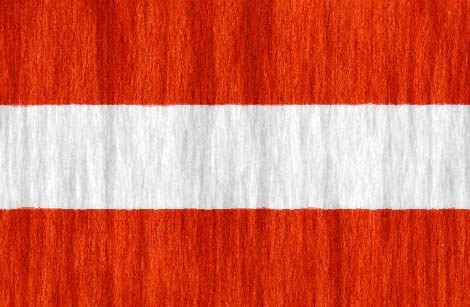DPA
Vienna
Austria’s lawmakers passed a law yesterday that aims to curb foreign influence on local Islam, but which has also created tensions with Austrian Muslims.
The drafting of the law that regulates the relationship between Islam and the state had been overshadowed by debates about religious extremism and by recent terrorist attacks in Europe.
The law bans the funding and deployment of some Muslim clergy from foreign countries such as Turkey and Saudi Arabia, both practices currently in use.
It also establishes that Austrian law stands above Islamic religious rules, in line with the government’s plan to foster an “Austrian-style Islam”, as Foreign and Integration Minister Sebastian Kurz has repeatedly stated.
Muslim representatives said the law was discriminatory, arguing it was more restrictive than laws governing other religions.
“The attempt to create an ‘Austrian-style Islam’ ignores the need for fostering religious diversity and mutual respect,” the Turkish Islamic Union (ATIP) said in a statement.
“It turns the Islam law into a security law,” added the union, which runs many Austrian mosques. It employs some 60 imams paid by the Turkish state, out of the 300 Muslim clergy working in Austria.
The union and other Muslim organisations are planning to fight the bill at the Constitutional Court.
The head of Turkey’s religious authority, Mehmet Gormez, said the debate in Austria caused “great sadness”.
The law would curb religious freedoms and would set back Austria 100 years, the Turkish Andalou news agency quoted him as saying.
The far-right Freedom Party (FPOe) said the law was not strict enough and would therefore not help prevent radicalisation.
“I say that [Islam] does not belong to Austria, neither culturally nor historically,” FPOe leader Heinz-Christian Strache said in parliament.
He criticised that the law does not oblige imams to hold sermons in German. Nor does it ban burqas and minarets.
Strache argued the language rule was necessary so that police could monitor what he claimed was “dangerous Islamisation and dangerous radicalisation” in mosques.
The law was opposed by the FPOe and other opposition parties. It passed with the majority of legislators representing the current government coalition of Social Democratic Party and centre-right People’s Party.
Around 600,000 Muslims live in Austria, making up approximately 7% of the country’s 8.6mn inhabitants. Many Muslims have Turkish or Bosnian roots.
Nearly 200 radicalised Islamists from Austria have joined the Islamic State fighters in Syria and Iraq, according to the Interior Ministry.
A poll by broadcaster ORF showed Tuesday that 58% of Austrians believe there has been an increase in the radicalisation of Muslims, while 41% fear terrorist attacks like those that took place in Paris in January and in Copenhagen this month.
Integration minister Kurz stressed in parliament that the law was not a reaction to terrorism, but to unwanted foreign influences that stand in the way of cultural and religious integration.
“In Austria, there must be no contradiction between being a self-confident Austrian and a religious Muslim,” he said.
The Islam law does not only contain restrictions, but also several points welcomed by Muslims, such as setting up a university-level education programme for imams in Austria.
It also grants imams the right to visit army barracks, prisons and hospitals to visit Muslims seeking spiritual counsel, as well as obliging public institutions to offer food in line with Muslim regulations. France set out a package of reforms yesterday aimed at better integrating Muslims and preventing radicalisation in the wake of the recent jihadist attacks in Paris.
It outlined plans to set up a “dialogue forum”, tapping leading associations, intellectuals and other notable figures from the Muslim community for regular talks with the government.
Much of the focus will be on the training of Muslim preachers, trying to “encourage the emergence of a generation of imams fully engaged in the Republic”, an interior ministry source said.
Radicalisation in prisons is also central to the reform efforts.
Two of the three Paris attackers are thought to have been radicalised in prison, where a chronic shortage of Muslim chaplains — there are only 180 nationwide — has often ceded spiritual guidance to extremists.
France’s strict secularity laws make it illegal to count people by their religion or ethnicity, but a report on prisons by an opposition MP last year estimated that 60% of the prison population (roughly 40,000 people) were Muslim.

